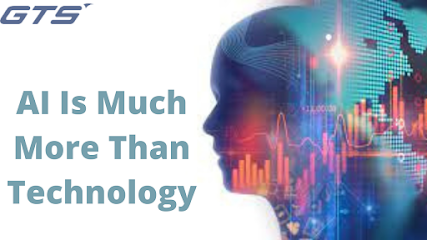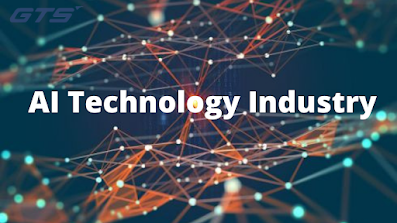AI Not Just A Technology "A New Era"

Introduction
Everybody concurs that computerized reasoning is a "game-evolving innovation".
Without a doubt, it is as yet in the beginning phases of its turn of events and current assumptions are regularly set excessively high. Peculiarity - where counterfeit genius outperforms human insight - is still "moderately" far away.
Artificial intelligence is Much More than "Simply a Technology"
Artificial intelligence is more than a "device" that improves, for example, fabricating processes. It is more than the subsequent stage in consistence. It is in excess of a framework to cause expectations that to work with activity. It is likely significantly more than a disruptor of "information work", all the more for the most part.
AI can possibly change each part of how we live, work and carry on with work
The more I consider it, the more I am persuaded that AI will influence the way we "trust".
Who, what and how we trust are for the most part being changed as AI turns out to be more coordinated into our regular day to day existences.
This might sound somewhat fantastical, however there are as of now numerous instances of how we progressively place our confidence in calculations, programming and PC code.
We purchase items, book convenience, reserve a spot at eateries in light of surveys and proposal calculations. We trust Wikipedia to give us the right data. At the point when we pose Google an inquiry we expect - and trust - that we get the right response.
We as a whole might have some leftover doubt of enormous tech organizations, however in our regular daily existences we will more often than not put that incredulity aside and "trust" in the innovation.
All things considered, we currently live in a universe of purported "pervasive registering".
Registering is currently implanted in all parts of our regular day to day existences.
PC code gives the inconspicuous and inconspicuous "engineering" organizing our entire presence. We track down a plenty of models in our work, amusement, correspondence, utilization, travel, or schooling. These everyday issues, as well as the decisions related with these exercises, are progressively coordinated by and around computerized advances.
Ponder the amount of our lives is spent interfacing with gadgets that are, at a profound level, working advanced code.
Such communication can be immediate and general, changing from cooperating with an advanced cell or PC to - more far off - venturing out to chip away at a metro framework that is mechanized, in different ways.
In the two cases, it is PC code that makes the experience conceivable and PC code that, eventually, furnishes the design and decision related with that experience.
With items getting more brilliant and associated, it is effectively to anticipate that we will just have to an ever increasing extent "trust" in machines.
As a matter of fact, joined with other quick mechanical advancements in the space of blockchain, IoT, sensors, independent driving and huge information, it is just not out of the ordinary that AI will assume a prevailing part in our future lives.
We Need More "Stages" for Building "Trust"
Would we be able to truly trust AI?
Would it be a good idea for us to simply allow things to run their course and acknowledge the results?
The vast majority I converse with will quite often concur: "We shouldn't simply trust AI".
We ought to attempt to comprehend what AI is as of now meaning for our lives. All things considered, the effect will be substantially more huge than the presentation of the Internet.
To fabricate trust in AI, we want to have definite conversations at all levels (and not just among the AI subject matter experts). We want to zero in on what it implies, what it is now meaning for our daily routines and what it will mean for our lives from now on.
As of late, I have been pondering this. Also, at whatever point I am talking at or going to a gathering at home or abroad and AI isn't on the plan, I accept that we are passing up on an open door.
All things considered, gatherings are a magnificent chance to begin talking about the effect of AI on fields outside of "innovation".
We need to pose inquiries about AI, comprehend how AI Datasets are prepared, where the information is coming from, and so on.
Specifically, we really want to contemplate the qualities or "morals" that structure how AI works.
For instance, how would we believe an independent vehicle should respond when faced with an unavoidable mishap? Would it be a good idea for it to limit the death toll, regardless of whether that implies forfeiting the inhabitants of the vehicle or would it be advisable for it to focus on the existences of the tenants at any cost? On the other hand, should the decision be an arbitrary one?
Straightforward, open and comprehensive exchange is by all accounts the most ideal way to fabricate genuine confidence in the frameworks that will structure our lives from now on.

Future extent of Machine Learning Models
There is a gigantic future extension for man-made consciousness. It will turn out to be all the more immeasurably involved and will set out more work open doors in this field. It will assist designers with advancing seriously state of the art innovation soon. According to Markets, the worldwide AI market might hit 309.6 billion dollar market capitalization. 39.7 percent development can make man-made brainpower the highest innovation for what's to come.
This multitude of angles show the immense notoriety and significance of computerized reasoning. So we can obviously express that man-made reasoning can be the distinct advantage innovation for what's to come. The future has a place with computerization, and the future has a place with man-made reasoning.
Advantages of AI Technology
There are many advantages of man-made reasoning. Some of them are,
- The savvy and fast dynamic framework
- Dispose of human mistake and make creation blunder free
- Improve client commitment with the assistance of man-made consciousness empower chatbots
- Foster imaginative and clever machines which can work for 24*7
- It gigantically improves network safety and limits outer dangers. Subsequently it gives a solid and safeguarded network.
- Offer programmed support any place and at whatever point required
This multitude of advantages make computerized reasoning a most loved innovation of engineers as well as clients.
Conclusion
At Global Technology Solutions, we are fully aware that your learning models totally require AI Training Data. This will help to guarantee fully optimized algorithms for you. However, these models do not need just any type of data. What they require are large, premium datasets that are human-annotated. When it comes to the management of subjectivity, comprehending intent, and dealing with ambiguity, humans are always more effective than computers. Take advantage of our platform to significantly enhance your data gathering endeavors and collect numerous premium datasets to be used in the fast training of your machine model.
.png)


Comments
Post a Comment